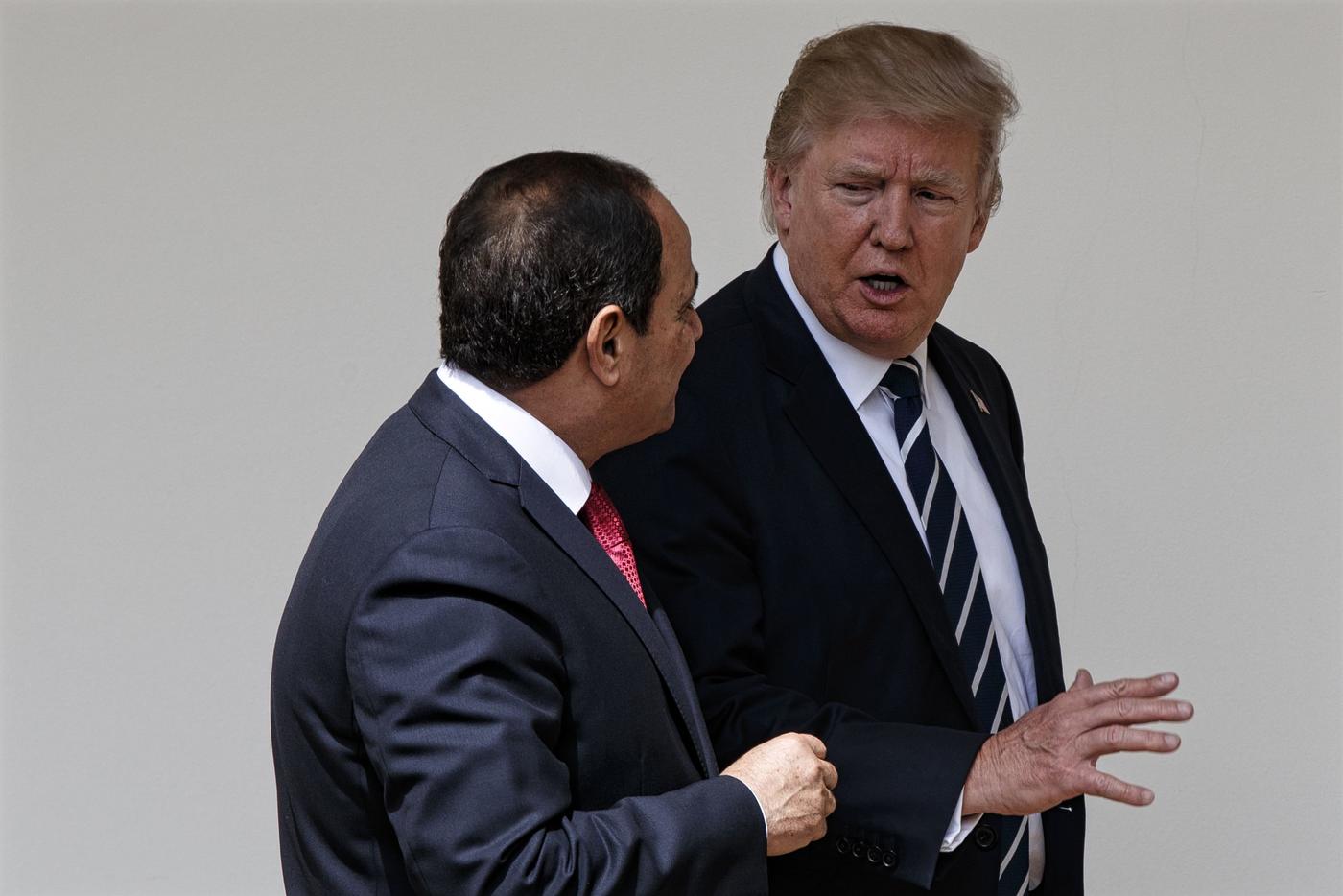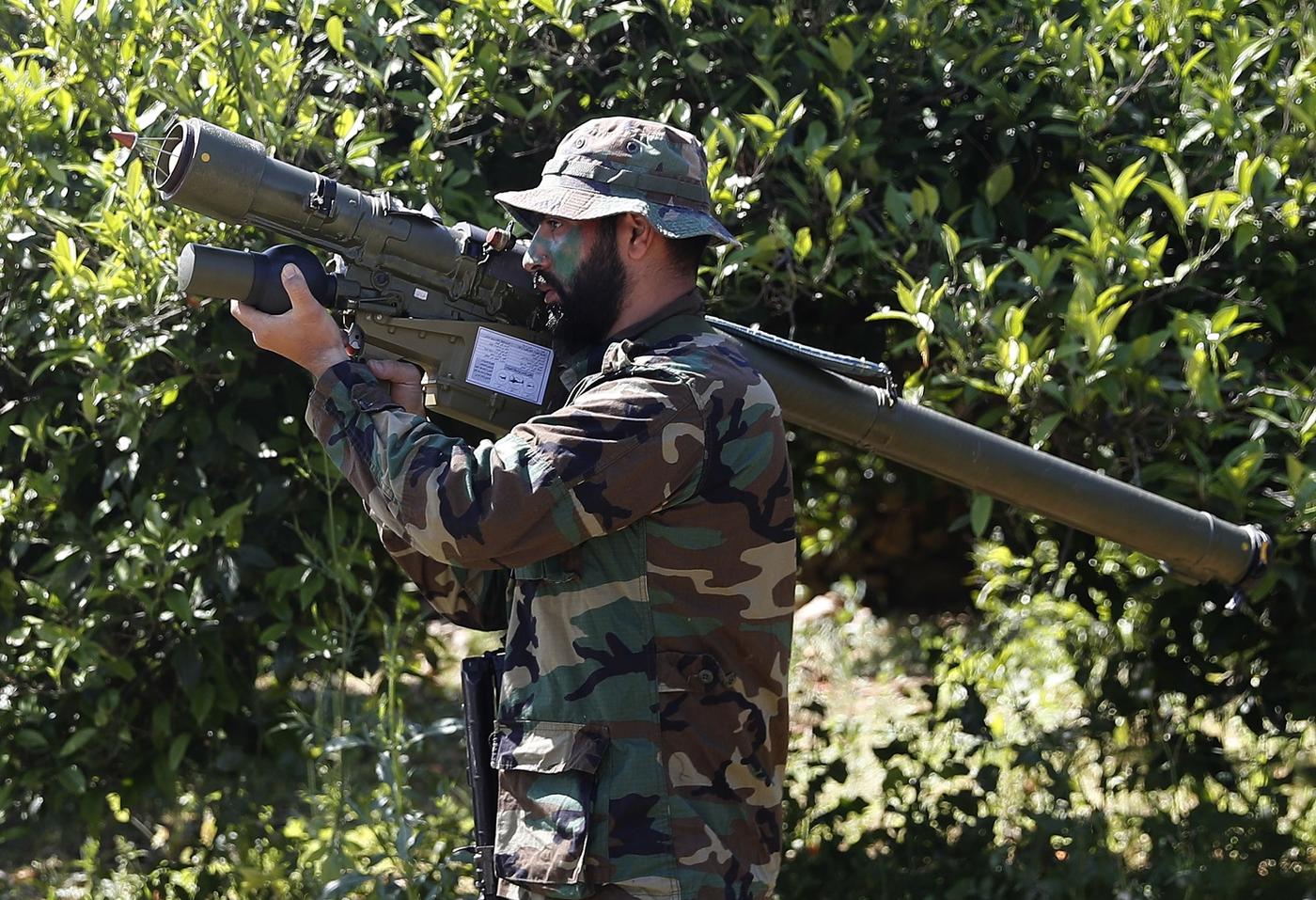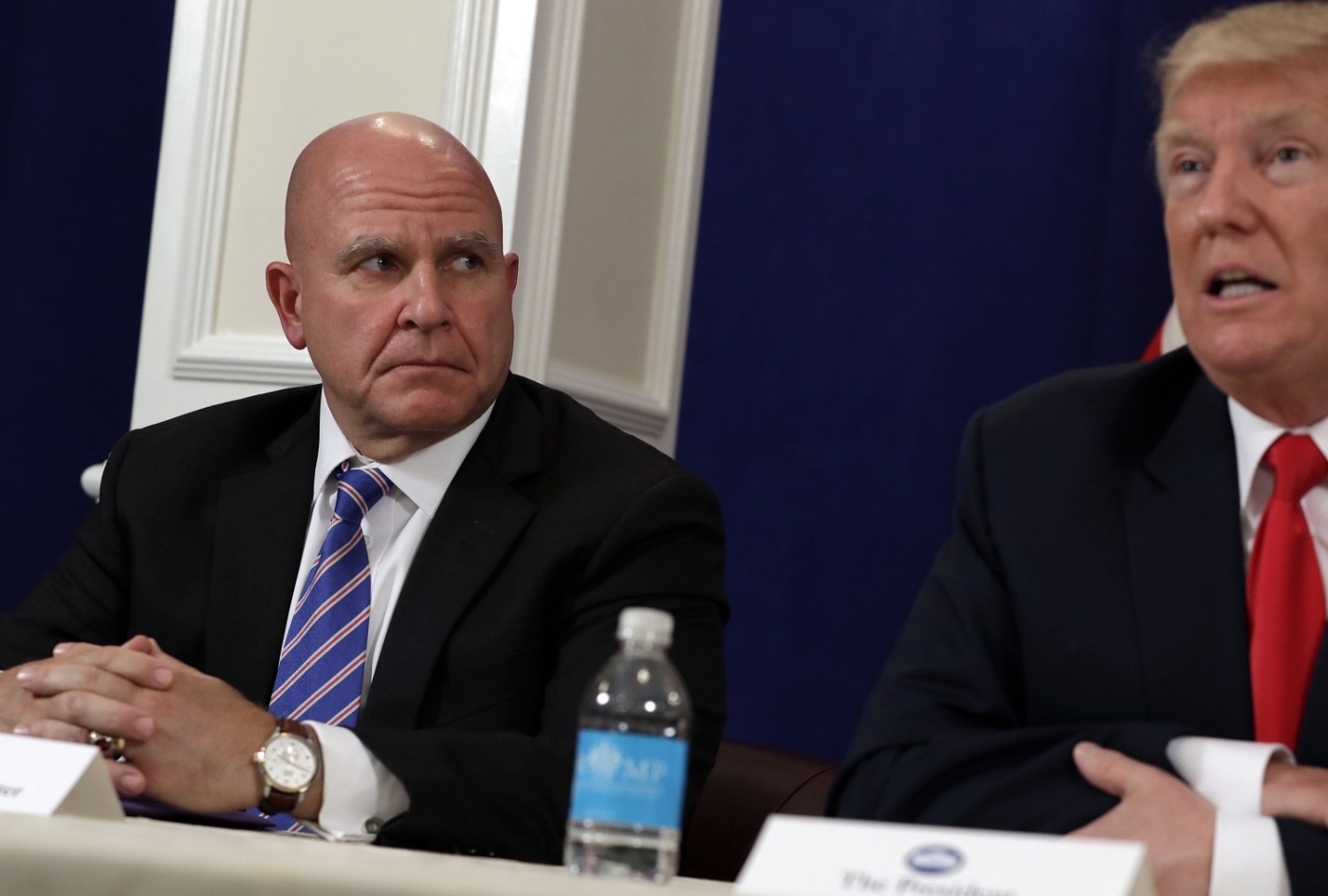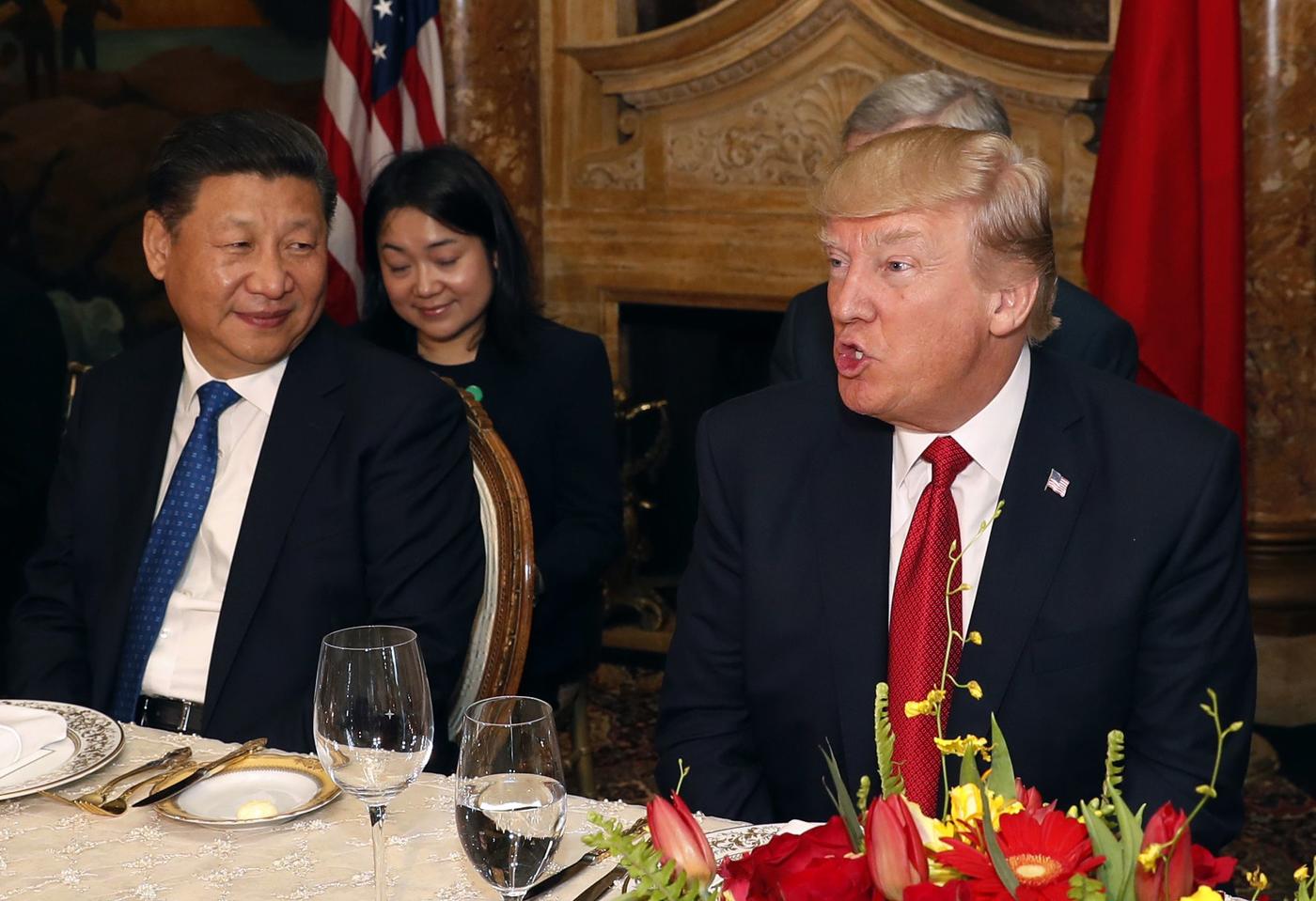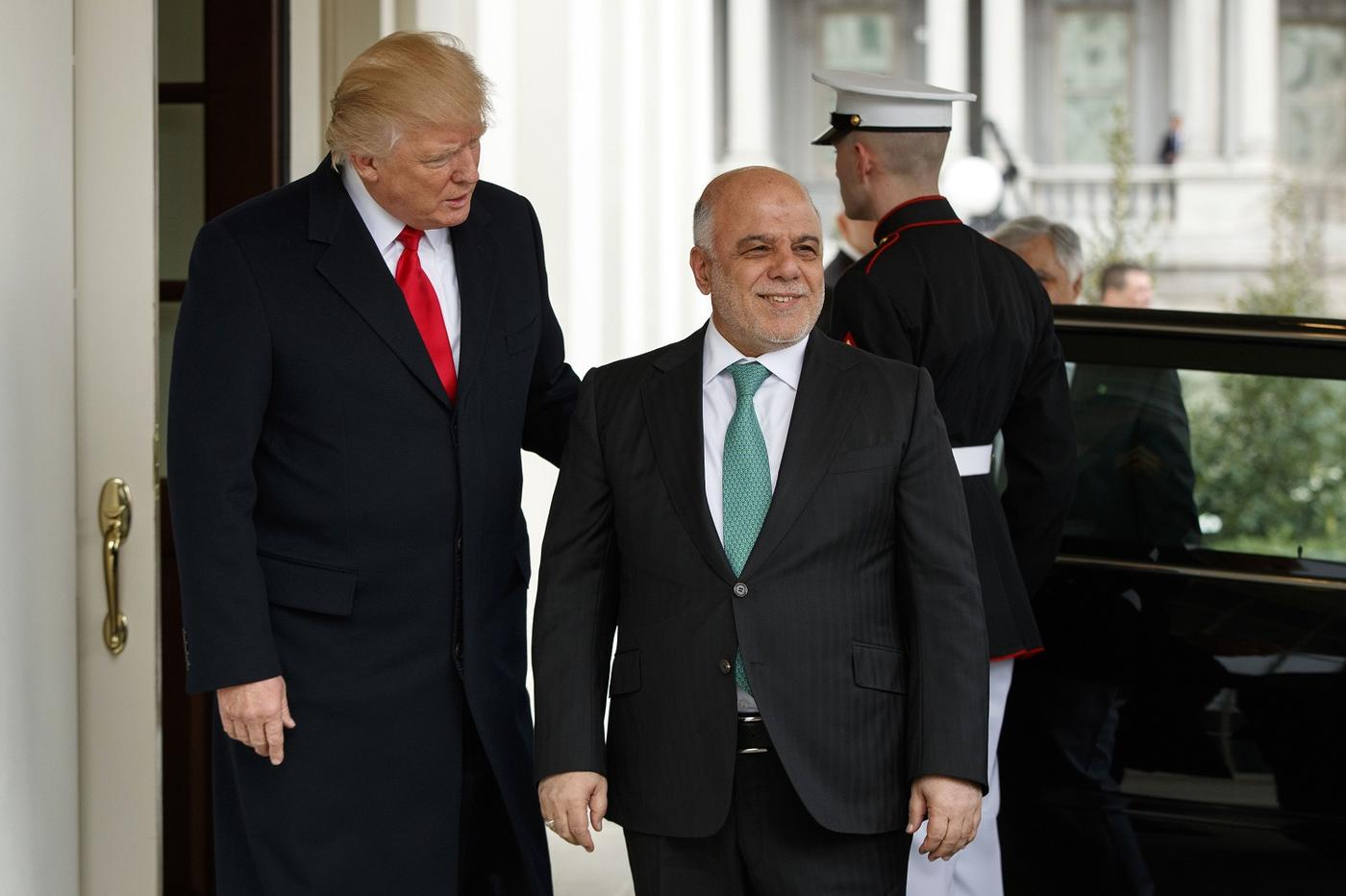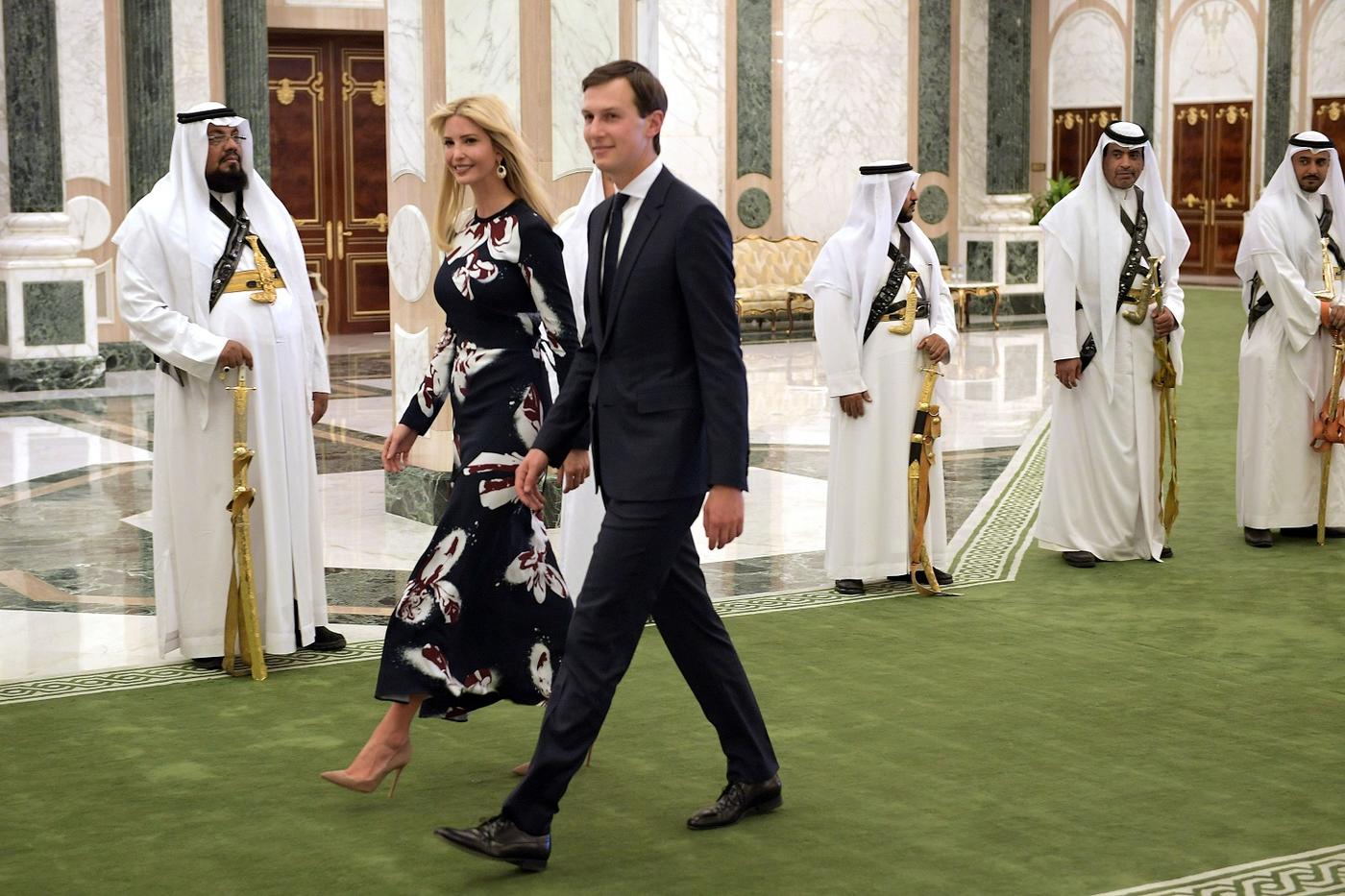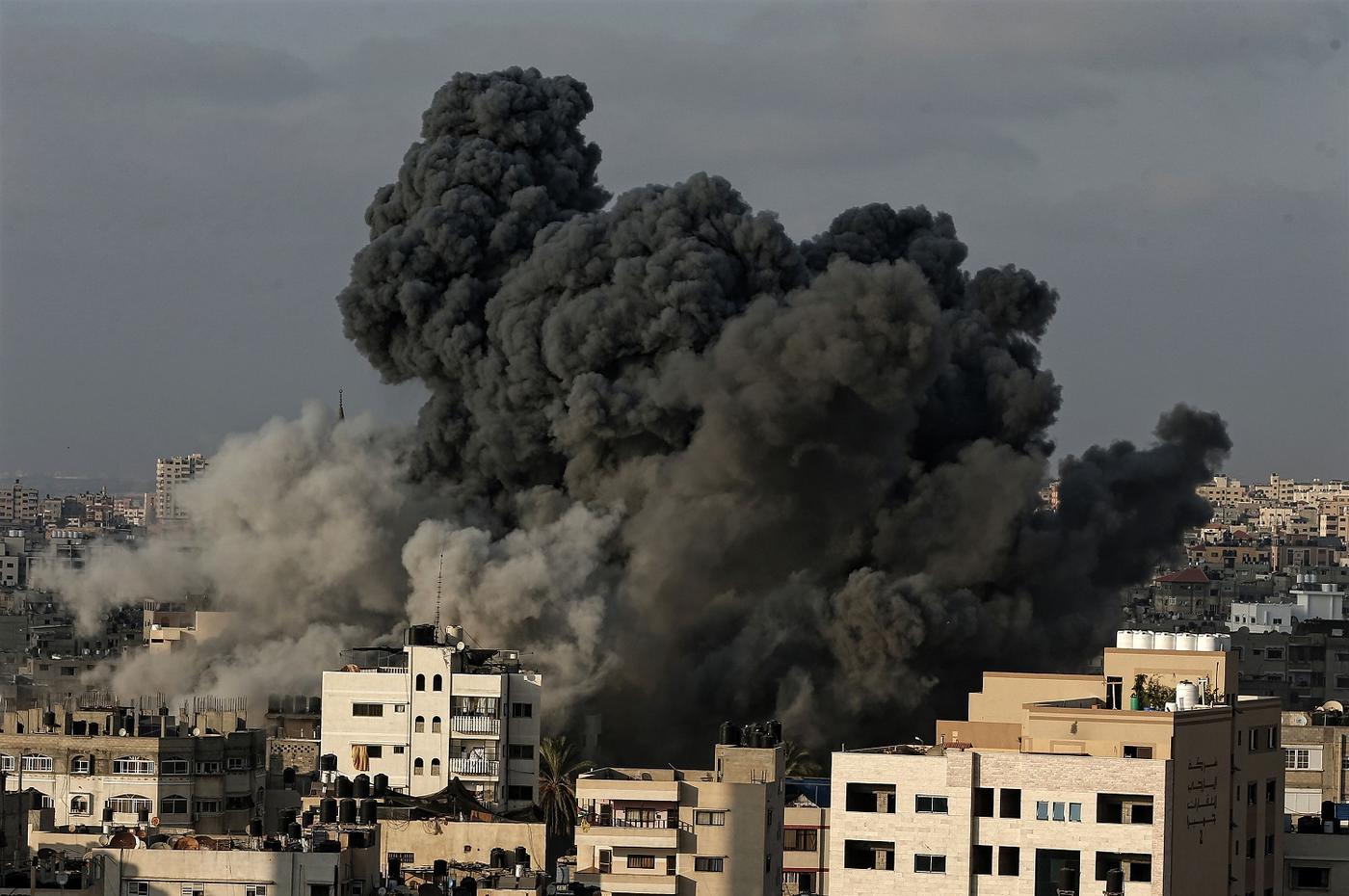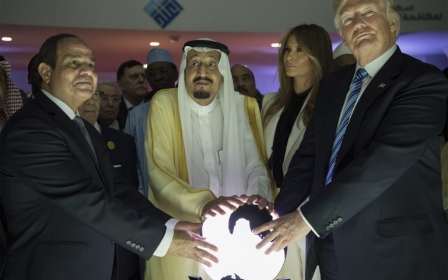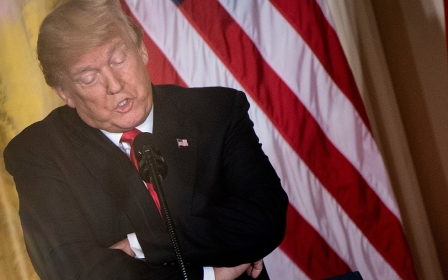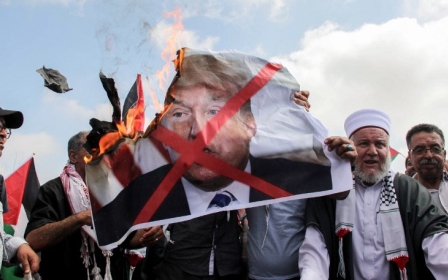The Middle East according to Trump: Seven things we learned from Woodward's 'Fear'
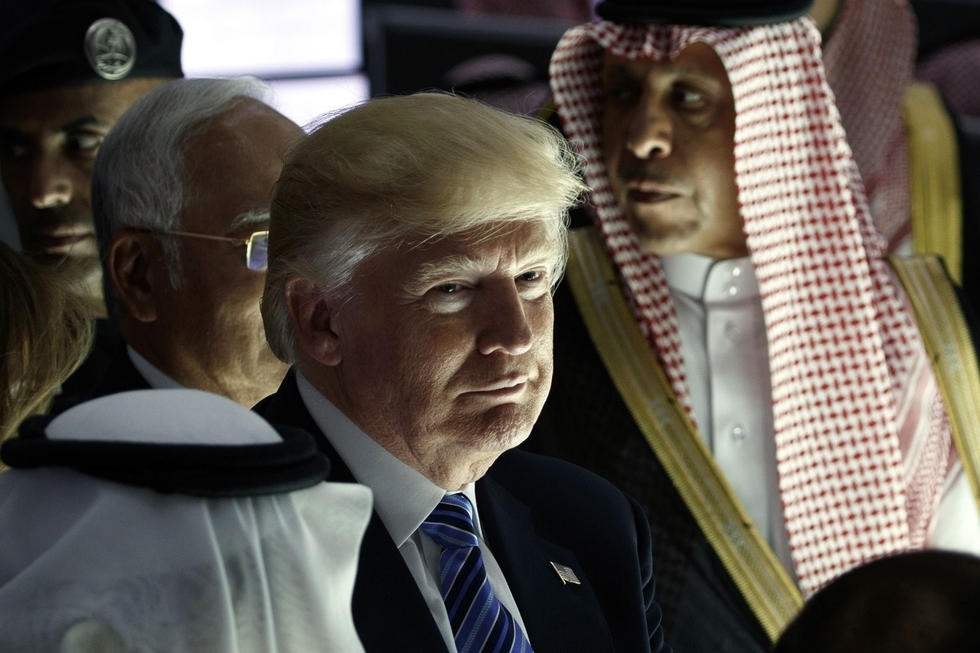
As with anything inflammatory and Trump-related, Fear: Trump in the White House, Bob Woodward’s new book about the president, is causing a stir.
Woodward, the Washington Post journalist who made his name by revealing the Watergate scandal that led to the resignation of President Richard Nixon in 1974, has spoken at length to many of the major players in the Trump White House – but not Trump himself.
The result is a predictably incendiary picture of life inside the most chaotic American administration of modern times - or at least since Watergate.
Not a man known to – in the words of Joan Didion – “exert cognitive energy on what he is told”, Woodward is a journalist who spools what he hears from powerful people straight onto the page.
Trump's response to the book has been delivered, true to form, furiously and on Twitter:
New MEE newsletter: Jerusalem Dispatch
Sign up to get the latest insights and analysis on Israel-Palestine, alongside Turkey Unpacked and other MEE newsletters
But what does Fear tell us about Trump and the Middle East?
1. Egypt: Sisi the 'killer'
As more than a hundred journalists have pointed out, Trump has a colourful way with words and a fondness for international strongmen, including Russian President Vladimir Putin and North Korean Supreme Leader Kim Jong-un.
Woodward reports on how Trump needed to negotiate the release of Aya Hijazi, a US citizen and activist held in prison in Cairo for three years.
At one point the president relays the conversation he had with Egyptian President Abdel Fattah al-Sisi to John Dowd, his own legal adviser (Dowd, like many of the characters in Woodward’s book, has since resigned).
“Dowd, remember who I’m talking to,” he [Trump] said. “The guy’s a fucking killer. This guy’s a fucking killer! I’m getting it done. He’ll make you sweat on the phone. And right before we make the deal, el-Sisi says,” and Trump assumed a deep gravelly voice, “Donald, I’m worried about this investigation. Are you going to be around? Suppose I need a favor, Donald.” It was “like a kick in the nuts. It’s awful,” Trump said.
Since this story broke, Aya Hijazi has written on Twitter that she was glad Trump knew Sisi “is a murderer, and overcame that repulsion to release me”.
But it’s also worth noting that Trump has often used the term “killer” approvingly to describe business associates he thinks really get the job done.
Sisi may, his opponents allege, be a killer, but he’s also a “killer” – a tough guy who strikes a hard bargain.
2. Hezbollah and Iran's 'idiot raghead mullahs'
Derek Harvey was a White House ally of Michael Flynn, the now-disgraced, Iran-fixated general who was fired as Trump’s national security advisor after less than a month in the job.
Like his former colleague, Harvey regards the Lebanon-based Shia movement Hezbollah as a “ticking time bomb” and America’s main concern in the region. Woodward – presumably channelling Harvey – writes that:
The sensitive intelligence showed that Hezbollah had more than 48,000 full-time military in Lebanon, where they presented an existential threat to the Jewish state.
A mixture of fear and excitable bloodlust seems to run through the US administration as they consider the possibility of a “catastrophic war” between Israel and Iran, conducted through Tehran’s proxy, Hezbollah:
They had 8,000 expeditionary forces in Syria, Yemen and region-wide commando units. In addition, they had people worldwide - 30 to 50 each in Colombia, Venezuela, South Africa, Mozambique and Kenya. Hezbollah had a stunning 150,000 rockets. In the 2006 war with Israel they’d had only 4,500.
Woodward writes that “Iran was paying Hezbollah’s bills – at a staggering $1 billion a year” - and that, he points out, does not include the “money laundering, human trafficking, cocaine and opium deals, and selling ivory tusks from Mozambique”.
At one point, secretary of defence Jim Mattis refers to the "idiot raghead mullahs" of Iran. Woodward does not appear to object to this view.
Harvey was dismissed in July 2017 by National Security Advisor HR McMaster, who himself resigned in March of this year.
The turnover of Trump officials is staggering but US support for an increasingly militarised Israel and fierce opposition to Hezbollah remains clear: at one point Woodward reports that fighters from the Iran-backed group were killed by the Americans on a road east of Palmyra, in Syria.
3. Libya: Let’s just get the oil
One feature of Fear is Trump’s frustration with McMaster and McMaster’s disgust with Trump. Over Libya, as with many other things, they clash.
At one point McMaster, a retired army officer comes into the Oval Office and tries to get a sensitive order relating to Libya signed. The scene, as reported by Woodward, is a brief one:
"I’m not going to sign it, Trump said. The United States should be getting oil. The generals aren’t sufficiently focused on getting or making money. They don’t understand what our objectives should be and they have the United States engaged in all the wrong ways."
4. Syria: 'Let’s fucking kill him'
Three months into Trump’s presidency, a sarin gas attack against Syrian rebels opposed to President Bashar al-Assad posed the question of whether or not the United States would respond.
By Woodward’s account, Trump, is “full of emotion” and calls Jim Mattis. “Let’s fucking kill him”, the president says of Assad. “Let’s go in, let’s kill the fucking lot of them”.
The American military, Woodward writes, had the “capability to launch a covert top secret leadership air strike in Syria”.
Trump sounded personally attacked. Syria had promised not to use chemical weapons—an apparent reference to Syrian president Assad’s agreement to destroy all his chemical weapons.
Yes, Mattis said. He would get right on it. He hung up the phone. “We’re not going to do any of that,” he told a senior aide. “We’re going to be much more measured.”
The book then recounts the battle over responses that plays out inside the White House. Trump, sentimental and geared up, wants to go in hard. But Mattis, despite being known as “Mad Dog”, wants to do something more than Obama ever did - but not too much.
Steve Bannon, the right-wing ideologue and close Trump advisor (before he left, of course), is fiercely opposed to the idea of America being the world’s policeman and believes that the US response should be no response. The bigger question of what exactly the US is doing having such a large presence in the Middle East – a question asked by Trump, as well as Bannon – goes unanswered by the coterie of regional experts and security advisors that fill the White House, according to Woodward.
Bannon says that if what Assad has done is the “standard”, then he’ll go and “get some pictures of sub-Saharan Africa. Let me get some of what’s happening down in Guatemala and Nicaragua. If this is the standard for a fucking missile strike, let’s go everywhere. Let’s do everything”.
In the end, the US goes ahead with its 59-missile strike (one falls into the sea) and Trump is described as being “unusually focused on the details”. The missiles are launched as the president is having dinner at his Florida home Mar-a-Lago with Chinese leader Xi Jinping. Woodward reports the conversation between the two leaders.
As dessert was being served Trump said to Xi, “We’re in the process of bombing Syria because of its gas attack.”
“Say that again,” Xi said through the interpreter. Trump repeated it.
“How many missiles?” Xi asked.
Trump said 59.
“59?” Xi asked.
Trump confirmed 59.
“Okay,” Xi said, “I understand. Good, he deserved it.”
And that was the end of the dinner.
For many weeks after the strike, Trump asked about further options to take on Assad.
Secretary Mattis was alarmed that Trump might order a second strike and worked to tamp down and discourage another military action in Syria. After weeks Trump’s outrage subsided and he turned, but not quickly, to other matters.
5. Iraq: Haider al-Abadi is 'full of shit'
In another attack on McMaster, Trump mocks the security chief for his admiration of Iraqi prime minister Haider al-Abadi. As Woodward writes:
In a searing insult to McMaster, Trump did an imitation of his national security adviser. The president puffed up his chest and started noticeably exaggerated breathing. He said in loud staccato, “I know the president of Iraq. He’s a good man, sir! I know he has our best interest at heart.”
Returning to his normal voice, Trump said, “That guy’s just full of shit. I met this guy. McMaster doesn’t know what he’s talking about.” Trump had met the Iraqi prime minister, Haider al-Abadi, at the White House in March 2017. “These military guys, they don’t get business. They know how to be soldiers and they know how to fight. They don’t understand how much it’s costing.”
Woodward's account backs up reports at the time of the Trump-Abadi meeting that the president had referred to Iraqi officials as “the most accomplished group of thieves I’ve ever met”.
6. The First Daughter - and Jared's MBS bromance
The influence of Trump’s daughter Ivanka and her husband Jared Kushner have over the president is another feature of Woodward’s book.
An old family friend of Benjamin Netanyahu, Kushner has a vision for the Middle East that sees an ever stronger Israel lavishly supported at all costs by the United States.
Speaking as if she was a part of a monarchy, according to Woodward, Ivanka Trump tells Bannon that she is the “first daughter”, not, in his words, some “fucking staffer”:
During a meeting in [then-White House Chief of Staff Reince] Priebus’s corner office Bannon and Ivanka got into an altercation.
“You’re a goddamn staffer!” Bannon finally screamed at Ivanka. “You’re nothing but a fucking staffer!” She had to work through the chief of staff like everyone else, he said. There needed to be some order. “You walk around this place and act like you’re in charge, and you’re not. You’re on staff!”
“I’m not a staffer!” she shouted. “I’ll never be a staffer. I’m the first daughter” - she really used the title -“and I’m never going to be a staffer!”
Ivanka also works Trump up over Syria, showing him pictures of gassed children and bombed babies and stoking the sentimental fury that fills her father.
Kushner, meanwhile, develops a bromance with Saudi prince Mohammed bin Salman who, Woodward writes, he identifies as the man to court in the Gulf before even the young prince's ascent to power.
But, Woodward reports, the CIA disagrees with Kushner, saying that the “real solid guy was the current crown prince, Mohammed bin Nayef”. So much for that.
But Woodward writes, with more than a little credulity – channelling Kushner, perhaps - of MBS:
The son of the Saudi king, MBS was also the defense minister, a key position and launching pad for influence in the Kingdom. MBS had vision, energy. He was charming and spoke of bold, modernizing reforms.
It is Kushner who pushes for Trump’s first presidential trip to be to Riyadh in 2017. And it is Kushner who believes more than anyone in the Israeli-Gulf axis that is coming, more and more, to dominate the Middle East.
The impression the book's passages on the Middle East leaves is that it is Kushner who has more power than anyone when it comes to America and the region.
7. Palestine? Nope
With Netanyahu’s friend Kushner pulling the strings, American opposition to Iran and full-throttle support for an all-powerful Israel is clear.
Fear: Trump in the White House clocks in at 448 pages long but the words “Palestine” and “Palestinian” do not appear. If we read Woodward’s book as a reflection of the prejudices and preoccupations of the people ruling America – and we can – then this is an absence that’s louder than bombs.
For Woodward’s Trump, there is no Palestine.
This article is available in French on Middle East Eye French edition.
Middle East Eye delivers independent and unrivalled coverage and analysis of the Middle East, North Africa and beyond. To learn more about republishing this content and the associated fees, please fill out this form. More about MEE can be found here.


